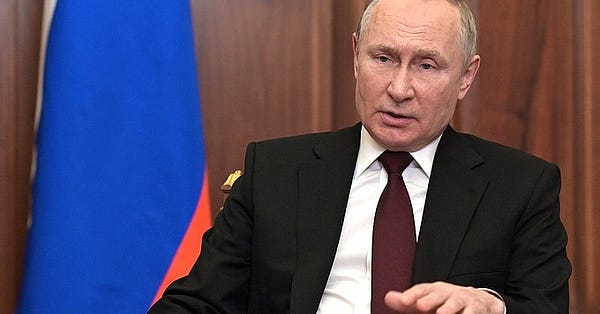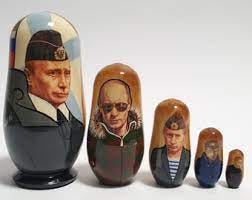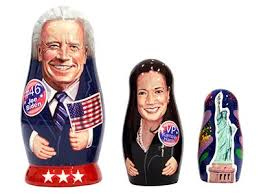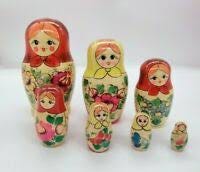Hey, millionaires, billionaires, oligarchs, and other well-off, regular consumers of Wide World of News!
Please consider joining your many fellow readers who chose this week to become financial supporters of my daily work.
You can subscribe here:
Or become a voluntary contributor to support this same independent journalism by sending an email to markhalperintalk@gmail.com and arranging to give any amount of your choice.
Wide World of News has no ads, researchers, corporate or institutional backing, or safety net.
It’s just me here.
Want to leave a tip in the amount of your choice instead of subscribing?
Here are the many ways to do that:
* PayPal. markhalperinnyc@gmail.com
* Venmo. Mark-Halperin-4 (telephone number ends in x3226)
* Zelle. markhalperinnyc@gmail.com
* Buy me a cocktail (at Gotham City prices….), tax and server tip included, by clicking here.
* Buy me a cup of coffee (or a week’s worth) by clicking here.
Thanks!
****







****
THE STORY SO FAR
Putin plays a few cards (an aggressive speech, the verbal taking of some Ukrainian land, a few false flags, and some additional troop movements), so the U.S. and NATO play a few cards (initial sanctions, a big pipeline suspension, some force deployments, some strong rhetoric, the likely secret arming of the Ukrainian military).
Read the Associated Press on the latest moves.
A few editorial voices express hope and optimism that the West will win in the end. See Madeleine Albright’s New York Times op-ed piece – in which she writes about talking Chinese food with Putin in their first meeting – as a good example of this genre.
But most of the U.S. and European commentary is much darker, about the Putin Edge, and about the need for soul searching in the West about how we got to this point in modern hell.
Here is Bret Stephens:
Putin has advantages his opponents don’t, which go beyond the correlation of military forces in the Donbas.
One advantage is the correlation of appetites: Putin wants Ukraine under his thumb much more than the West wants to keep Ukraine in its orbit, and he’s willing to pay a higher price to get it. Another advantage is the correlation of attention spans: Putin has methodically set his sights on returning Ukraine to his fold since at least 2004. For the West, Ukraine is another complex crisis of which it will eventually tire. A third advantage is the correlation of wills: Putin wants to change the geopolitical order of Europe and is prepared to take large risks to do it. The Biden administration wants to preserve a shaky and increasingly lifeless status quo. Fortune tends to favor the bold.
But Putin’s greatest advantage is self-belief. Serious historians may scoff at his elaborate historical theories about Ukraine’s nonexistence as a true state. But he believes it, or at least he makes a convincing show of it. What, really, does the West believe about Ukraine, other than that it would be a shame, and scary, if Putin were to swallow large chunks of it? Certainly nothing worth fighting for.
And here is Bill Galston:
Against this backdrop, the Russian invasion of Ukraine should trigger a crisis of European identity. If force is a permanent feature of international relations, the European Union must either take more responsibility for its own defense or admit that it has subcontracted this job to the U.S. indefinitely, along with some of the EU’s strategic independence.
My thoughts at this hour:
1. Let us hope and pray this ends up being Cold War II and not World War III.
2. No one knows for sure how much the sanctions will hurt Putin and the Russian people; what we know even less about is how much whatever hurt there is will modify Putin’s behavior.
3. If Putin has a point of no return, he has likely already crossed it. But there is the slim possibility that he has no point of no return.
4. Putin might not have the same level of spy-driven insight into the American government as the American government has into his decision making (both remarkable technology and human intel), but he understands the dynamics of U.S. politics and society – and he has significantly more patience in letting this conflict play out than your typical cable news anchor does.
5. Putin will play his remaining cards at a pace, places, and times of his choosing.
6. One way to look at the challenge for Team Biden: If right now, time is largely on Putin’s side, what can the USG do to reverse that? Because as long as time is on the Russian side, the West can’t win. The sanctions are meant to reverse that dynamic.
7. If Putin is Hitler, proportionate card playing makes neither moral nor practical sense. It might be time for the U.S. and its allies to play all their cards.
8. The biggest problem in some ways is that Putin knows the U.S. and NATO won’t fight to defend Ukraine. And if Putin can take Ukraine – and get the momentum that would come with such a victory – can/would NATO really protect the weakest links in the alliance? Putin could make a bet that NATO will not. Then the West would not only be in WWIII – we would be losing WWIII.
****
ESSENTIAL READING
1. The Wall Street Journal looks at the American malaise over inflation, with stats, anecdotes, and academic quotes galore.
I leave it to you to decide who Team Biden-Harris-Donilon-O’Malley Dillon-Pelosi-Schumer is more worried about: Professor Sides or Jeweler Arthur:
“GDP is a very abstract idea, whereas people can understand the concept of inflation and increasing prices,” said John Sides, a professor of political science at Vanderbilt University….
Ms. Arthur, the jewelry designer in Mississippi, is a lifelong Democrat who voted for Mr. Biden, but said she has lost confidence in him because of inflation. She said she considers him out of touch with the troubles that the pandemic and inflation have dealt to ordinary people, and is open to voting Republican in the midterms.
“The economy looks like we’re going to be at a standstill for a while,” Ms. Arthur said.
2. The Associated Press melds Ukraine with inflation and comes up with this:
Yet families will likely need some form of relief and that creates even greater urgency for Biden’s domestic agenda, said Joe Brusuelas, chief economist at the consultancy RSM, who estimates that the economic shock from war in Ukraine could send inflation above 10%....
“It is the American middle and working classes that will bear the burden of adjustment caused by another European war.”
3. From the start, I have metaphorically bet that President Biden would pick one of the Big 3 for the Supreme Court vacancy, and was leaning heavily towards Judge Ketanji Brown Jackson, and today the Washington Post reports this:
[T]hree of the people briefed on the selection process said they expected Biden would select Jackson, who emerged as a front-runner soon after Justice Stephen G. Breyer announced his retirement in late January. Others painted a picture of a decision that was more fluid.
The president might of course pick someone else, but if you know the mind of Joe Biden and the biography and record of Judge Jackson this becomes as easy a prediction as Mr. Biden’s vice presidential pick.
4. Is this story about Ron DeSantis’ curiously undignified CPAC speaking slot accurate?









